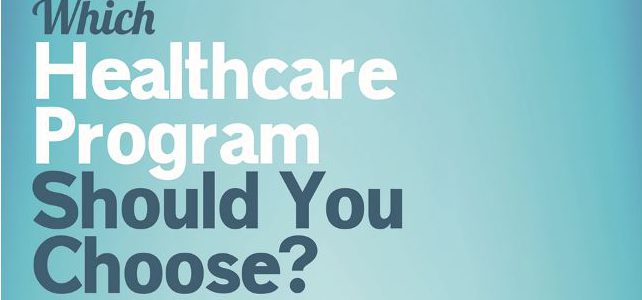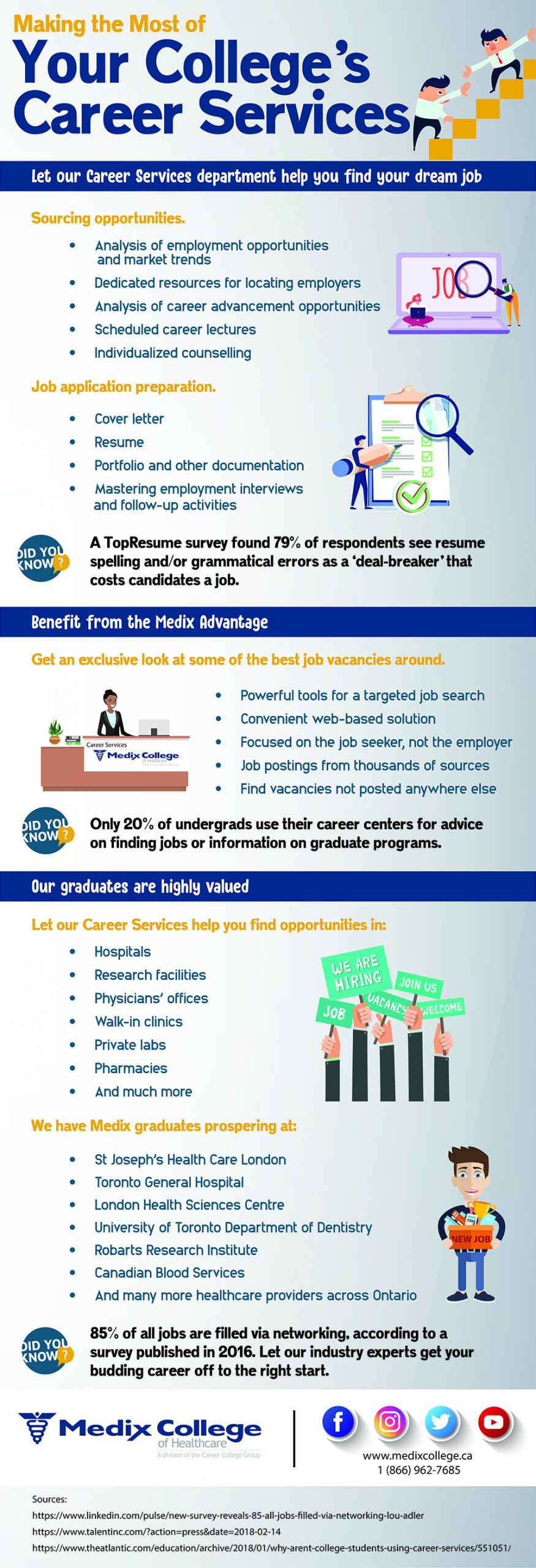Category: Healthcare
Exploring The Role: Food Service Worker Job Description Explained
August 10, 2023
Nutrition is an essential dimension of health making food service workers a vital part of any integrated healthcare team. If you have an affinity for food preparation and nutrition, this may be the perfect role for you. Keep reading for a comprehensive description of the food service worker role. Learn about your daily responsibilities, what sort of technical and soft skills you’ll need to thrive in the role, and how our training program will prepare you to be a competitive and competent candidate.
What You’ll Do: Food Service Worker Job Description
Food service workers assist in the preparation and service of food to patients in various healthcare settings including hospitals, special care institutions, and long-term care homes. These roles are demanding but also very rewarding as they involve the nourishment of those who cannot nourish themselves. As a food service worker, you will cook, prepare, and serve food to patients following safe food handling procedures. They may also be responsible for sanitizing cooking supplies and food service areas in order to ensure the health and safety of patients. Other tasks may include stocking refrigerators and pantries with food products and essential kitchen supplies.

Essential Food Service Worker Skills
Food service workers require various technical and soft skills in order to thrive in their roles. They must have a profound understanding of nutrition and its effects on health. In addition, they must be aware of various food allergies and intolerances caused by conditions like celiac disease and diabetes then work around them. Some essential technical skills for this role include the proper preparation of various meals and food safety. Soft skills that you may not see on a food service worker job description also play an integral role in your success in this role. For example, communication skills, customer service, stress management, the ability to multitask, and observational skills are essential.

How Food Service Worker Training Will Help You Succeed
In pursuit of this career, certification will be an important way to distinguish yourself as a knowledgeable candidate who’s ready to work. Healthcare facilities need to trust your ability to exercise the right food safety practices, understand nutrition and the dangers associated with nutritional deficiencies, prepare meals that will nourish patients, and serve these meals. Our training program covers all of the skills and knowledge you’ll need to meet all food service worker duties and responsibilities. Using three engaging delivery methods – online flexible learning activities, in-person practical labs, and externships, you’ll have plenty of opportunities to grasp essential principles and get hands-on practice.
FAQs To Consider
Q: What does a food service worker do?
A: As a food service worker, you will cook, prepare, and serve food to patients following safe food handling procedures. They may also be responsible for sanitizing cooking supplies and food service areas in order to ensure the health and safety of patients.
Q: What is a food service worker?
A: Food service workers assist in the preparation and service of food to patients in various healthcare settings including hospitals, special care institutions, and long-term care homes.
Ready to start our food service worker program?
Contact Medix College to learn more!
If you’re seeking a career that’s both fulfilling and provides financial stability, the healthcare field is a great option to consider. You can enjoy job and financial stability and rewarding work as a healthcare professional. Healthcare provides access to various interesting roles and work environments for those who have received the appropriate training from a reputable healthcare college. Continue reading to learn how healthcare training is the first step towards accelerating your career and finding success.
You’ll Have Job Stability After Healthcare School
Due to recent economic events, many career seekers are prioritizing job security. The past several years have seen an economic decline, but choosing the right field can safeguard your career and finances from inevitable downturns. Mass retirement in the healthcare field has created a significant labour gap that you can take advantage of in a sector that will continue to be in demand. People will always need specialized professionals to help them heal and care for their health.
Many healthcare professionals work full-time, some even taking on extra hours because their services are in such high demand. Whether you intend to work full-time, part-time, or even on a casual basis, you won’t have to worry about job security after healthcare school. Having a solid sense of stability will also benefit your state of mind, priming you for further advancement after you’ve landed your first healthcare position.
Gain Access To a Variety of Healthcare Roles and Work Environments
Not all healthcare positions are the same, and there are a variety of environments where you can find work in this rewarding field. For example, after healthcare career training, you can find work in public and specialized hospitals, healthcare centers, patient’s homes, schools, public health agencies, insurance companies, and more, depending on the healthcare career path you choose. At Medix College, you can choose from various career paths, including: medical administration, dental assisting, medical laboratory technnician, pharmacy assisting, and more.
A healthcare career will afford you the flexibility to move around as you please and experiment with different settings until you find the perfect fit for you. The opportunity to work in various settings is also great for networking, as it puts you in contact with many different staff members, some of whom may even help you into your next big career breakthrough.

Practical Experience Will Help You Excel on the Floor
In addition to learning medical practice theories, you’ll need the chance to put that vital knowledge into practice. To deepen your understanding and establish mastery, the best healthcare training program will provide you with ample opportunities to gain practical experience. At Medix College, we combine the most current medical theory with hands-on training, ensuring you master the medical techniques. You’ll leave fully equipped with the skills and confidence needed to excel in the workplace.

Medix College is a reputable healthcare college that has been offering industry-leading career training for over fifty years. In addition to our three conveniently located campuses in the GTA, we now offer online and hybrid learning options to accommodate the changing needs of our students. Explore an array of rewarding, stable healthcare careers and start building your career today.
Ready to explore your options in healthcare college?
Contact Medix College to learn more!
Infographic: Which Healthcare Program You Should Choose After Healthcare College
April 15, 2021
Medix College is the perfect place to develop the skills for a range of interesting careers, whether you want to work in an office, or as a hands-on healthcare professional. Students at our dedicated healthcare college learn essential theory needed to excel in their chosen field. We also recognize the need for students to apply their newly developed skills to the working environment, which is why our healthcare courses also include excellent practical training opportunities. Our graduates are well equipped to make an instant impact in the healthcare sector.
So, what program should you choose? There are so many great options available, so evaluate your own personal skills. Are you personable with excellent communication skills? Are you interested in working with numbers and files? Or would you like to offer caring support to those in need? No matter your interests, you’ll quickly find a healthcare program that suits you.
So, here’s a useful guide to help you choose the best career for you.
Which Healthcare Program Should You Choose?
Does the following sound like you?
- Love spending time with people
- Want to help those in need
- Good communicator
Strong communicators should check out these great programs:
- Community Service Worker
Help people of all ages resolve social and emotional issues
Common job tasks:
- Interviewing and counselling clients
- Intervening in crisis situations
- Assisting clients through support and advocacy
- Child Youth Addictions Worker
Work with adolescents, children, and families to address addiction problems
Common job tasks:
- Supervise clients in group homes and halfway houses
- Implement substance misuse treatment programs
- Implement behaviour management programs
Did you know? 1.9 million people were working in the Canadian health care and social assistance sector in 2017.
- Fitness Health Promotion
Educate clients on exercise and nutrition
Common job tasks:
- Instruct clients on athletic activities and techniques
- Design and deliver social/recreational programs
- Lead group exercise sessions
Does the following sound like you?
- Enjoy math
- Good attention to detail
- Like working in a team environment
Are you interested in technical healthcare careers?
- Medical Lab Technician Assistant
Help process patient specimens
Common job tasks:
- An important member of the lab team
- Safely collect blood specimens
- Perform electrocardiograms (ECGs)
- Pharmacy Assistant
Perform essential duties in a pharmacy retail setting
Common job tasks:
- Help fill prescriptions under the supervision of a pharmacist
- Package and label pharmaceutical products
- Maintain prescription records
- Medical Office Administrator
Develop the skills to perform vital office duties
Common job tasks:
- Scheduling appointments
- Billing services to patients
- Maintenance of medical data database
Did you know? 19,000 vacancies for medical administrative assistants are expected between 2017-2026, with just 17,700 new job seekers expected to be available to fill them.
Does the following sound like you?
- Don’t want an office job
- Enjoy helping others
- Not squeamish
Start a hands-on career by choosing one of these rewarding programs:
- Personal Support Worker
Provide essential assistance to clients
Common job tasks:
- Prepare, cook, and serve meals
- Provide personal care
- Perform light housekeeping and cleaning
- Intra Oral Dental Assistant
Help dentists in the treatment room and reception
Common job tasks
- Educate patients about dental health
- Provide chair support to the dentist
- Perform reception and clerical duties
- Massage Therapy
Help clients with muscle and joint pain
Common job tasks
- Assess client need for therapy
- Administer massage treatments
- Help with conditions and injuries
- Rehabilitation Physiotherapist Assistant
Work under the supervision of a physiotherapist and provide physical support
Common job tasks
- Work in hospitals, physio clinics, and much more
- Assist in patient lifts and support
- Help physiotherapists provide clinical care for clients
Did you know: Job website, Monster, says employment growth in the healthcare sector is higher than average because of Canada’s aging population.
Sources:
https://www150.statcan.gc.ca/t1/tbl1/en/tv.action?pid=1410020201
https://www.monster.ca/types-of-careers/healthcare-careers
https://www.jobbank.gc.ca/marketreport/outlook-occupation/25791/ca

Once you’ve developed the required knowledge and skills to succeed in the workplace, finding the perfect job is the next challenge. At Medix College, our Career Services department will help you along the way, by informing you of exciting job opportunities, fine tuning the necessary application documentation, and by helping you to ace the interview process.
The Medix Advantage will help you source and secure job vacancies not advertised anywhere else, and you could quickly be joining our alumni at healthcare institutions across the province after graduating from healthcare training.
Career services are too often overlooked by students. It’s a shame, since it’s a valuable opportunity that offers helpful insight and support to help you prosper after enrolling in career training in healthcare. Fortunately at Medix all students receive employment counselling and job search training throughout their studies. Let’s take a closer look at what Medix College Career Services can offer.
Making the Most of Your College’s Career Services
Let our Career Services department help you find your dream job
Sourcing opportunities
- Analysis of employment opportunities and market trends
- Dedicated resources for locating employers
- Analysis of career advancement opportunities
- Scheduled career lectures
- Individualized counselling
Job application preparation
- Cover letter
- Resume
- Portfolio and other documentation
- Mastering employment interviews and follow-up activities
Did you know: A TopResume survey found 79% of respondents see resume spelling and/or grammatical errors as a ‘deal-breaker’ that costs candidates a job.
Benefit from the Medix Advantage
Get an exclusive look at some of the best job vacancies around
- Powerful tools for a targeted job search
- Convenient web-based solution
- Focused on the job seeker, not the employer
- Job postings from thousands of sources
- Find vacancies not posted anywhere else
Did you know: Only 20% of undergrads use their career centers for advice on finding jobs or information on graduate programs.
Our graduates are highly valued
Let our Career Services help you find opportunities in:
- Hospitals
- Research facilities
- Physicians’ offices
- Walk-in clinics
- Private labs
- Pharmacies
- And much more
We have Medix graduates prospering at:
- St Joseph’s Health Care London
- Toronto General Hospital
- London Health Sciences Centre
- University of Toronto Department of Dentistry
- Robarts Research Institute
- Canadian Blood Services
- And many more healthcare providers across Ontario
Did you know: 85% of all jobs are filled via networking, according to a survey published in 2016.
Let our industry experts get your budding career off to the right start.
Sources:
https://www.linkedin.com/pulse/new-survey-reveals-85-all-jobs-filled-via-networking-lou-adler
https://www.talentinc.com/?action=press&date=2018-02-14
https://www.theatlantic.com/education/archive/2018/01/why-arent-college-students-using-career-services/551051/

No matter which healthcare training program you decide to pursue, a great resume will be an asset to you. It will help you list your qualifications, highlight your strengths, and make a strong impression on potential employers.
Wondering how you can make a great resume and really stand out from the pack? Here are a few tips that can help you do a great job and find quick employment after healthcare college.
The Anatomy of a Stand-Out Healthcare Resume
Employers typically look for specific details in resumes.In fact:
- Good formatting can boost resumeratings by 60%
- 43% of managers will reject a resume with typos
- Resumes that are tailored to specific jobs stand at superior
Want to create a great resume for yourself? Here are some tips to help you do a great job.
Be Sleek! Stick With Good Design Principles
There are a few simple design tricks that can help you make an attractive resume, including:
- Use a 10.5 to 12 pt. font
- Use simple fonts like Arial, Times New Roman, or Calibri
- Use whitespace to reduce clutter and separate your sections
- Stick to one page—many employers prefer this
Did you know? Employers spend approximately 6 seconds skimming a resume before deciding whether to read on. Good design can get you to the next step!
Don’t Forget To Tell Them Who You Are
The very top of the page is for your contact information. Include only the following:
- Your name
- Phone number
- Email address
- A brief personal statement—who are you? What can you offer employers?
Pro tip:There’s no need to put an objective! Employers know you want the job you’re applying for.
Include Your Most Relevant Healthcare Career Experience
- Already have healthcare work experience?Put work history first and education next
- Just entering the healthcare field?Put education first and work history next
Pro tip: Did you complete an “externshipuring your education? That counts as job experience!
The Dos & Don’ts of Work & Education History
- DON’T just list previous job responsibilities or course material
- DO mention responsibilities and achievements at healthcare work or school
- DON’T use overused terms (Synergy, go-getter, dynamic, self-motivated, etc.)
- DO explain how your skills allowed you to succeed in healthcare work or training
- DON’T have spelling mistakes in your resume
- DO have someone proofread your resume to ensure it is error-free
Pro tip: Be honest! 58% of employers have caught a lie on a resume—51% say that’s an automatic rejection.
Finish Your Resume withan Impressive Skills Section
Healthcare training programs will teach you useful skills—list them for employers! Here are some examples of in-demand skills you can develop in healthcare training:
- Filling prescriptions
- Report writing
- Working in laboratory teams
- Scheduling appointments
- Providing patient care
- And much more!
Pro tip: List only skills that are relevant to the position, and not too many. Experts say listing 8-10 skills issufficient.
REMEMBER…
Don’t send out the same resume to every opening! Tailoring your resume to specific jobs increases your odds of getting an interview.
Sources
https://www.monster.ca/career-advice/article/the-proper-use-of-fonts-in-your-resume
http://pilotonline.com/business/jobs/get-job/r-sum-s-white-space-is-your-friend/article_c3b32c35-0897-5c79-8a29-89c5c7c40965.html
http://www.inc.com/peter-economy/8-surprising-ways-to-make-your-resume-stand-out.html
https://www.resumeedge.com/why-most-resumes-are-never-read/
http://www.careerbuilder.ca/share/aboutus/pressreleasesdetail.aspx?sd=8%2F7%2F2014&id=pr837&ed=12%2F31%2F2014
http://www.bestsampleresume.com/blog/resume-writing/many-skills-mentioned-in-resume.html
https://www.eremedia.com/ere/why-you-cant-get-a-job-recruiting-explained-by-the-numbers/

If you’re someone who enjoys helping others and are often described as being patient and kind, then you might be considering a career in healthcare. Going to school can be a bit overwhelming, especially for those who have spent years away working in the real world. You might be wondering how to choose the best college or which signs to look for to know you’ve finally found the right place.
Attending a caring healthcare school is vital for the development and success of your career. It’s important to take your time before making your choice, selecting a school that clearly meets and prioritizes all of your needs. Keep reading to see how choosing a caring healthcare school impacts your learning experience and professional development.
Get the Most Out of Your Education by Experiencing the Perfect Program for You
Choosing the best healthcare school heavily relies on where you can find the best program. You’re probably looking for a place that provides a solid education in the field you’re interested in. Through that program, you might be hoping to develop your theoretical understanding and hands-on experience. This will allow you to be better prepared to ace certification exams, and will even help you feel more confident in the workplace.
Having great instructors is key for your success, and Medix College ensures that instructors bring real-world experience into your healthcare courses. Marva, a graduate of Medix, says, “It doesn’t matter how difficult you think the program is … [the instructor] would always have the time for you.” After her program, Marva started her internship and field training as a medical office administrator. Because she was prepared, she got hired there. These experiences help you get the most out of your education, making the time you spend during your healthcare training extremely valuable.

Complete Your Healthcare Courses in a Supportive Environment
Going back to school might be intimidating, but a supportive environment can help you get through any challenges with ease. When Christina first started her medical lab tech training at Medix, she had similar concerns. She says, “I chose Medix because when I was looking for a school, I was looking for someone who does not make promises but [makes] action—who can make me believe that starting is never too late and who will never let me feel alone.”
Finding a community that’s there for you when you need it can make your learning experience more enjoyable. It’s important to feel supported and welcomed during your studies, so looking for a school that creates this positive atmosphere will help you feel more comfortable. When describing her first experience walking through Medix’s Toronto campus before her medical office administrator training, Susan says, “I think it’s the energy that I felt as I walked through the hallways … and seeing all the friendly smiles—that was amazing for me.” Friendly staff can be a great sign of a supportive environment.
Susan also adds, “I love the way [Medix College] dealt with everything from the beginning. I felt I had a support system. … Not that they’d hold my hand all the way, but if I fall back, I know they’re there for me.” The process of applying to a new school and starting your first day doesn’t have to be difficult or scary. A good college will help you and be there for you, ensuring your comfort and peace of mind as you begin your healthcare journey.
Are you interested in going to a healthcare college?
Contact Medix College for more information!
The Success of Online Healthcare Training
June 23, 2020 Since the outbreak of the coronavirus, students across the world are being forced to work from home. It’s no longer possible to have students and teachers together in classrooms, labs, or lecture theatres, as the risk of spreading the virus from person to person is too high.
Since the outbreak of the coronavirus, students across the world are being forced to work from home. It’s no longer possible to have students and teachers together in classrooms, labs, or lecture theatres, as the risk of spreading the virus from person to person is too high.
At Medix College, a number of healthcare programs have been moved online. This means that students can continue their education and work towards a rewarding and fulfilling career, even throughout these unprecedented times. Read on to discover more about the success of online learning at Medix College.
No Need to Hit ‘Pause’
COVID-19 has put a lot of plans on hold for individuals and businesses. Vacations have been cancelled, product launches have been delayed, and employees have been furloughed. However, students do not need to hit pause on their studies. Online learning means that students at Medix College can continue to follow their ambition.
Popular programs, including pharmaceutical courses, fitness and health courses, and dental office administration courses, can now be completed online without even stepping out of your home. This is perfect for aspiring healthcare professionals that want to use this time to follow a new career path.

Online Healthcare Training is More Flexible
One of the many advantages of online learning is that it is much more flexible than traditional classroom learning. Students can learn from wherever they want as long as they have internet access. This means that there is no need to spend money or time commuting to school.
The extra time saved means that students might find it easier to balance their studies with other work and family commitments. In addition, outside of instructor-led classes, students can continue their learning at a time and pace that suits them. This extra flexibility could mean that students get more from their learning.
Improve Digital Skills
Students enrolled in fitness consultant courses and other online training programs might find that their digital skills quickly improve. Online classes use a variety of different e-learning software for video conference calls and other learning exercises. Students will learn how to use different software, and how to quickly adapt to new – and at first unfamiliar – methods of teaching.
Having the confidence to use new software and technology is a valuable skill in today’s workplace. Healthcare organizations will often introduce new software that staff will need to adapt to quickly. This is just one of the ways that online training will prepare students for future career success.

Prove That You Are Self-motivated and Hardworking
It can be difficult to adapt to online learning at first, especially if you are used to learning in the classroom. One of the main differences is that you will need to motivate yourself to study without an instructor or classmates around you.
This will help you to improve self-discipline and will also show future employers that you are self-motivated and capable of working independently.
Are you interested in online healthcare training?
Contact Medix College to learn more!
The Importance of Personal Protective Equipment to Graduates of Healthcare Courses
May 26, 2020
If you want maximum protection, you’ll need to put on some PPE. To put it broadly, personal protective equipment (PPE) is any type of equipment that can protect you from infection, workplace hazards, or other risks to your health. This can include N95 or medical masks, face shields, gloves, or eye goggles.
The use of PPE has become especially important during the ongoing COVID-19 pandemic, since it serves as a barrier between a healthcare worker and any individuals potentially transmitting the virus. This is in addition to other hygienic measures such as regular hand washing and physical distancing.
Protecting yourself in these situations is imperative, and there are multiple upsides to wearing the necessary equipment to do so. Here’s why healthcare students should understand the importance of PPE while on the job.
PPE Can Keep You Safe and Protected On Many Parts of Your Body
The use of personal protective equipment does not simply fall within the healthcare sector. It can be incredibly important across a number of industries, including construction, welding, or manufacturing.
There are examples of PPE for various body parts, such as your head (hard hats or helmets), eyes (goggles or face shields), ears (to protect from industrial noise, if you work in construction), feet (work boots, rubber boots or other protective footwear), and hands (sterile or latex gloves).
Those who have done their healthcare training may also find themselves wearing gowns, as well as surgical masks or N95 respirator masks. Since you may come into contact with fluids, blood, or anything carrying bacteria, wearing them is a must if you want to protect yourself. Also, remember that you will need to dispose of many of these items after a single use.

Healthcare School Students Should Know the Risks of Not Wearing PPE
Not only can wearing proper PPE help protect you from harm or illness, it can also protect you from any longer-term conditions that could result from exposure to certain elements or chemicals.
For example, not wearing protective eyewear such as goggles can cause some people to develop eye injuries or conditions, or even lose a portion of their eyesight entirely. The more adequate your PPE is, the more protected you’ll be from infection or any other preventable conditions.
Additionally, you should also follow proper procedures to ensure PPE is effective. For instance, a healthcare professional using gloves must wash their hands thoroughly before and after use — particularly if they will be in contact with bodily fluids — and never use the same pair for different clients.
PPE Can Help Protect You Against Infection During a Pandemic
Using PPE during the COVID-19 pandemic can protect you from infection, such as any contact with respiratory droplets, or contact with any person who may be carrying the virus asymptomatically. This can significantly reduce the transmission of, and exposure to, the novel coronavirus.

As a result of the unprecedented circumstances we’re currently living through due to COVID-19, the use of PPE has become even more important than ever before for healthcare school graduates.
In fact, Medix has donated various types of PPE such as masks, gloves, and lab testing equipment to frontline workers. With many of Medix College’s alumni, faculty, staff and students becoming true heroes during these times by working on the front lines, this was the least we could do to support them.
Want to take healthcare courses?
Contact Medix College to learn more!
 A career in healthcare can be incredibly rewarding. Whether you go into nursing or dental care, you will have the opportunity to help others.
A career in healthcare can be incredibly rewarding. Whether you go into nursing or dental care, you will have the opportunity to help others.
Thanks to Medix College’s online courses, you could take the first step in your healthcare career without stepping out of your home! Medix Online offers a wide range of courses, including Anatomy and Physiology, Dental Assisting, Medical Billing, Nutrition, and much more! There is a course for everyone, whatever aspect of healthcare you’re passionate about.
Online classes have many advantages and are accessible to students at any time, anywhere, as long as they have an internet connection. Read on to discover three key benefits of taking a class online.
Online Healthcare Training Gives Students More Flexibility
Taking online healthcare courses can give students the flexibility to work part-time, pursue a hobby, or spend time with family while studying. This is perfect for students who have other work or personal commitments. If you have a busy schedule and are worried about finding the time to study, online learning could be for you!
As well as this, having the flexibility to work while studying can ease the financial pressure for students. You could even gain experience in the healthcare sector during your course. This could be a valuable addition to your resume, and demonstrate to your employers that you have excellent time management skills.
Learn Anywhere with WiFi
Students that choose to study online will have more choice of colleges and courses. Thanks to online learning, you don’t need to choose a healthcare school that is within a commutable distance, you can choose the school that is best for you. Rather than focusing on geography and location, you can consider which one has the most interesting course and the best employability rates after graduation.
In addition, you can learn in an environment that is most comfortable for you, whether it’s a café, a library, or your living room! You can also save time by not having to deal with commuting or spending hours stuck in traffic.

Improve Your Self Discipline and Motivation
If you’re used to face-to-face teaching in a classroom environment, it can take a little while to adjust to learning online. It can require a bit more self-motivation and self-discipline, as there won’t be a teacher or other classmates over your shoulder to make sure you’re learning and paying attention.
However, once you get used to this, you will find that you become a lot better at motivating yourself to study – even when you don’t want to! You’ll have the opportunity to improve your time management skills and self-discipline, which will benefit you in your future career. You will also be able to show future employers that you are able to motivate yourself.
Do you want to learn more about online healthcare training?
Contact Medix College to find out more!
Considering Healthcare Courses? Here’s a Look at What Might Be in Store for the Future of Healthcare
May 08, 2020
The outbreak of COVID-19 has had an enormous impact on the healthcare sector. Everyone from dentists to nurses to personal support workers has been affected. In some ways, the outbreak has exposed some of the problems with healthcare in Canada and the ways that it can be improved.
We’re seeing an increase in e-health with a growing number of practices offering virtual consultations over the phone or video. As well as this, the shortage of healthcare workers, particularly at long-term care facilities, has become apparent, and many industry representatives are calling for greater investment in the sector.
Read on to discover what the future of healthcare might look like post-COVID-19 and what this means for aspiring healthcare professionals.
The Rise of Virtual Care
With the public being advised to stay at home and avoid contact with others as much as possible, a significant number of face-to-face appointments have been cancelled. Whilst it’s easy to delay a hair appointment, for example, health problems cannot be ignored. Healthcare facilities are adapting to this and offering patients the opportunity to speak to a doctor without contact over the phone or over video.
Not only will this slow the spread of contagious viruses, but it could also improve efficiency at busy practices. In addition, patients who have difficulty leaving home without assistance or who live in a remote area can access the healthcare that they need.
This could make a real difference in rural parts of Canada,where some isolated communities struggle to access proper healthcare. It also means that you might need to provide care and advice digitally after graduating from healthcare college.

Improved Care for the Elderly in Long-term Care Facilities
Long-term care facilities like care homes have been some of the hardest-hit areas in the sector. Personal support workers and other healthcare professionals have found it difficult to provide the necessary care while also mitigating the risk of infection. In order to prevent this from happening in the future, many care facilities are reassessing their structures.
Elderly people make up a large percentage of Canada’s population. Statistics show that over 65s represent the largest age demographic in the country, and this is expected to double by 2036. This, alongside the effects of COVID-19, show that we need to prepare to care for Canada’s aging population.
It has also raised questions around patient and staff management. Prior to the pandemic, personal support workers could rotate between care homes. However, this increases the likelihood of transferring contagious diseases. In addition, care homes are starting to question the patient to carer ratio. For example, is it feasible and beneficial to have one carer per worker?

An Increase in Investment in Healthcare
COVID-19 has made it clear that the healthcare sector needs to be better prepared for a surge in capacity. Facilities and workers have found it difficult to accommodate the increase in patients and do not have the capacity or equipment. It has exposed gaps in the supply chain, too, with many facilities relying on international suppliers.
It is hoped that after COVID-19, the Canadian government will see the importance of investing in healthcare, including research and the development of new medicines and drugs, improved capacity for testing and diagnosing health problems, and more resources for treatment. After healthcare training, you could play a role in making society a safer place for everyone.
Do you want to find out more about healthcare courses?
Contact Medix College today!








